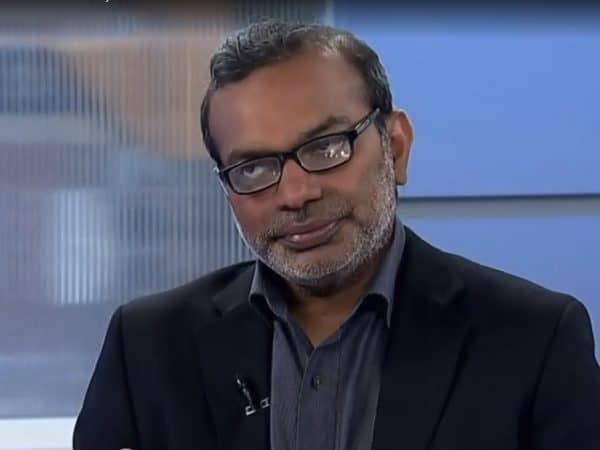

BlackBerry’s (BlackBerry Stock Quote, Chart, News: TSX,NYSE:BB) share price may be on the upswing over the past 12 months, but questions still abound concerning its future. Prakash Hariharan, CEO of Analytixinsight, argues that now that BlackBerry is no longer a cellphone maker, it’s tough to pin down exactly what the company’s focus is and, more importantly, how it expects to generate revenue.
Last year, only three per cent of Canadian smartphone users had BlackBerrys in their pockets, a dramatic fall from the early days of the mobile era where Waterloo, Ontario’s BlackBerry held first-mover status. But five years into CEO John Chen’s reign, the company has turned itself around, emerging as a software and security company.
In 2016, Chen licensed the BlackBerry mobile phone brand to companies like China’s TCL, cutting down the company’s manufacturing losses while maintaining a (small) revenue source in handset royalties (Chen has put the figure at about $10 to $15 dollars per phone). At the same time, the pivot towards enterprise software continued until, by Q4 of 2017, 85 per cent of BlackBerry’s sales came from software and services, with its gross margins coming in at 77 per cent, rather than the 30 per cent of 2014.
But while the switch from hardware to software meant a total reorganization, the makeover still hasn’t impressed everyone. Hariharan doesn’t seem to buy it, claiming that there’s less to the turnaround than meets the eye.
“The company has been in the penalty box for a year and a half and we’re waiting for something to happen,” Hariharan told BNN Bloomberg. “[Fairfax Financial] made this big investment, it’s got a new CEO who is working very hard, but at the end of the day, it’s a technology play. Are you going to club it with the Apples and the Androids?
“I’m unable to pigeonhole the value of their business right now. It looks good from a fundamental perspective but I just don’t understand what their business model is and what the business is going to look like,” he says.
Hariharan argues that holding companies like Fairfax in Canada (BlackBerry’s largest shareholder) and in the United States Berkshire Hathaway are value investors and thus that companies that they take on are bought at bargain rates, with the hope of slowly building them back up. But in BlackBerry’s case, that buildup via enterprise software doesn’t fit the mould.
“I’m trying to understand whether or not [Fairfax] is trying to play this as a seven or eight per cent growth — it doesn’t fit into that sandbox for me, and that’s my problem with this company and with Apple as well,” he says.
Leave a Reply
You must be logged in to post a comment.






 Share
Share Tweet
Tweet Share
Share




Comment